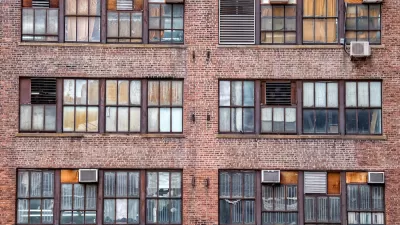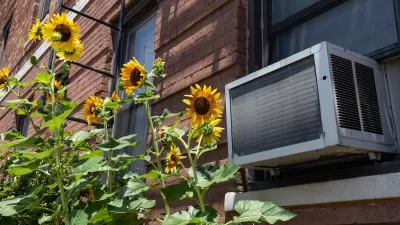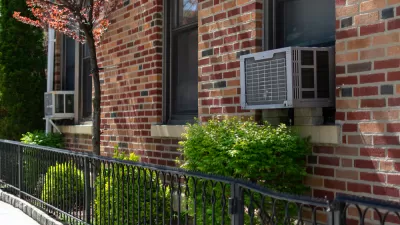With temperatures reaching record highs in cities around the country, local officials are implementing measures to ensure vulnerable residents have adequate cooling.

After three elderly women died, likely from heat-related causes, in a Chicago apartment building, a city alderwoman introduced updates to the city’s existing heating and cooling ordinance that will ensure cooling as an essential right. As Rebecca Redelmeier writes in Next City, “The new rules, which the city council approved last month and have already taken effect, mandate that all large condominiums and senior living buildings have designated cooling areas where cooling must be turned on when the outside heat index exceeds 80 degrees.”
With current temperatures in Chicago hitting the highest numbers in a decade, the ordinance comes at a crucial time for residents. “While cities across the country have long had laws about winter heat requirements, getting officials on board with the reality and urgency of cooling needs has been an uphill battle. The stakes are only climbing higher as climate change causes more frequent heat waves and hotter summers.”
Cooling can also be unaffordable for many households. “Cooling’s potentially high cost is not addressed in the new legislation, leaving some residents unable to afford to cool their homes. Though public programs exist to help low-income families cover utility costs, most don’t include cooling cost assistance.” With temperatures steadily rising year after year, advocates say the city should do more to protect people from extreme heat. According to Mark Wolfe, executive director of the National Energy Assistance Directors’ Association, “this summer is a wake-up call. It’s what the future’s going to look like.”
FULL STORY: Inside Chicago’s Effort to Protect Tenants’ Right to Cool Air

Maui's Vacation Rental Debate Turns Ugly
Verbal attacks, misinformation campaigns and fistfights plague a high-stakes debate to convert thousands of vacation rentals into long-term housing.

Planetizen Federal Action Tracker
A weekly monitor of how Trump’s orders and actions are impacting planners and planning in America.

San Francisco Suspends Traffic Calming Amidst Record Deaths
Citing “a challenging fiscal landscape,” the city will cease the program on the heels of 42 traffic deaths, including 24 pedestrians.

Defunct Pittsburgh Power Plant to Become Residential Tower
A decommissioned steam heat plant will be redeveloped into almost 100 affordable housing units.

Trump Prompts Restructuring of Transportation Research Board in “Unprecedented Overreach”
The TRB has eliminated more than half of its committees including those focused on climate, equity, and cities.

Amtrak Rolls Out New Orleans to Alabama “Mardi Gras” Train
The new service will operate morning and evening departures between Mobile and New Orleans.
Urban Design for Planners 1: Software Tools
This six-course series explores essential urban design concepts using open source software and equips planners with the tools they need to participate fully in the urban design process.
Planning for Universal Design
Learn the tools for implementing Universal Design in planning regulations.
Heyer Gruel & Associates PA
JM Goldson LLC
Custer County Colorado
City of Camden Redevelopment Agency
City of Astoria
Transportation Research & Education Center (TREC) at Portland State University
Jefferson Parish Government
Camden Redevelopment Agency
City of Claremont





























